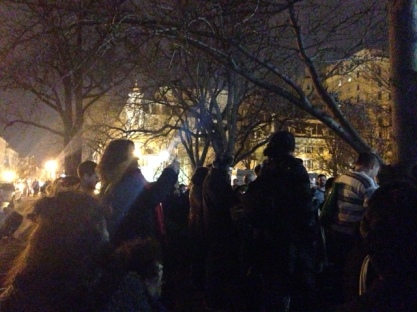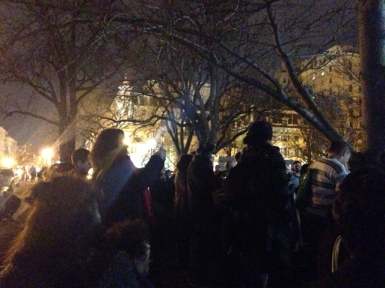
Powerful is the best word that I can think of to describe the 2017 AWP (Association of Writers and Writing Programs) conference in Washington, D.C. Needed also comes to mind.
Highlights:
Keynote Address
Azar Nafisi, an Iranian writer who became an American citizen in 2008, and is the critically-acclaimed author of Reading Lolita in Tehran and other works, a Johns Hopkin professor, and journalist, gave the keynote speech.
She said that in America, we are suffering from a crisis of vision, faith, and values – that the crisis isn’t political, it’s existential – it is about our identity.
The poet and tyrant, she explained, have always been rivals over the truth; the tyrant fabricates reality, whereas the poet reveals it. With tyranny in Iran, women, other minorities, and culture were targeted first. She added, “Does this ring a bell?” Today’s problem, then, she continued, is, in part, that of one voice becoming everyone’s voice, which writers must prevent. Literature is about learning about the other.
She reminded us that as James Baldwin stated, to disturb the peace is the writer’s role.
Panel: “Agents of Change: Social Justice and Activism in the Literary Community”
This panel helped me to form important questions:
- How do we amplify? How do we go from social media activism, letter writing, and petition signing to louder forms of protest? We do not want to use the tactics being employed by the Trump administration and supporters. How do we fight on our own terrain?
- How do we make attention to issues that matter, such as those involving people of color and other minority groups, sustainable? (Instead of mainly focusing on them just after an event has occurred that requires response.)
- How do we build bridges and to whom? Do we focus on the young? Those who did not vote? What strategies do we employ to get people to engage in necessary conversations? How do we find a way to lower the tension instead of continuing to raise it?
Readings
Danez Smith, when asked how he survives, replied, “I survive by remembering sitting on the porch with my grandmother.” He remembers the beauty – to write those details about life. He said that the reason he writes about the issues that are faced by our country is out of love.
There were many moving readings. The names James Baldwin, Adrienne Rich, and Frederick Douglass, among others, were often evoked. “Love” was a word that I heard repeatedly recited in poetry.
Candlelight Vigil for Freedom of Expression
Several phenomenal writers spoke, including a writer who almost could not make it to the AWP due to Trump’s travel ban, and explained about having to go to Mumbai for her Visa. She said to imagine the people who had been waiting for years to come to the United States, the refugees, only to be told to turn back, to go home, when no home awaited. The woman she sat next to on the plane spoke no English and could not order a meal or fill out a form without assistance. She hadn’t seen her daughter in ten years, so when the ban was frozen, she purchased yet another expensive ticket in an effort to reach her daughter as soon as possible, before the travel situation could again change.
Another writer, a transgender queer person of color who was an immigrant, talked about the United States and being able to dream that someday a transgender person could be president and being unwilling to give up that dream.
Ross Gay closed the vigil with a beautiful metaphor. Evidently, trees are able to communicate through their root systems. If one tree is low on a nutrient, it can let another tree know, and if that other tree has a surplus, it is able to send the nutrient to the tree in need. It reminded me very much of how my mom described the Great Depression: “If a neighbor’s baby was in need of milk and we had it, we would give it to them and vice versa.” She lamented how the world had changed – how she felt that would no longer hold true. Ross Gay, however, made it clear that we writers are the trees, that we need each other now, more than ever.
When the AWP began, I thought ahhh…I’m with my tribe. But I leave D.C. today, thinking, ahh…I’m with my trees!
